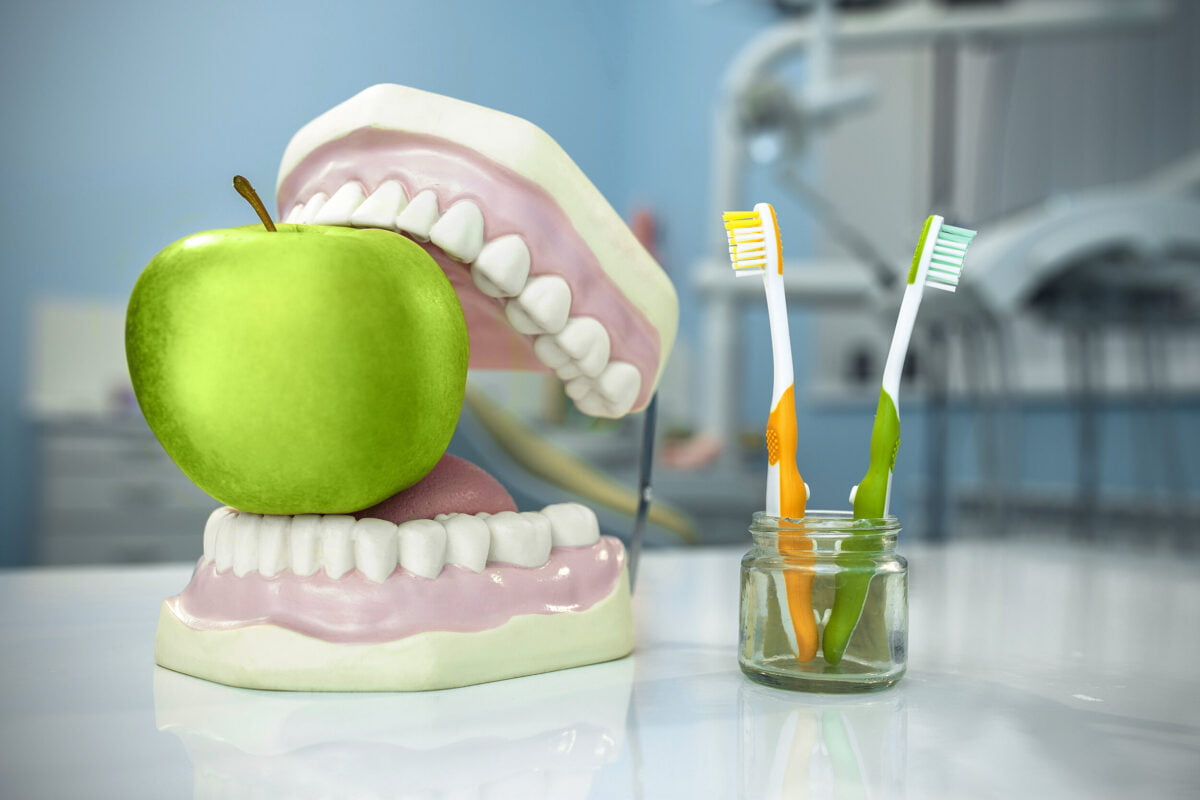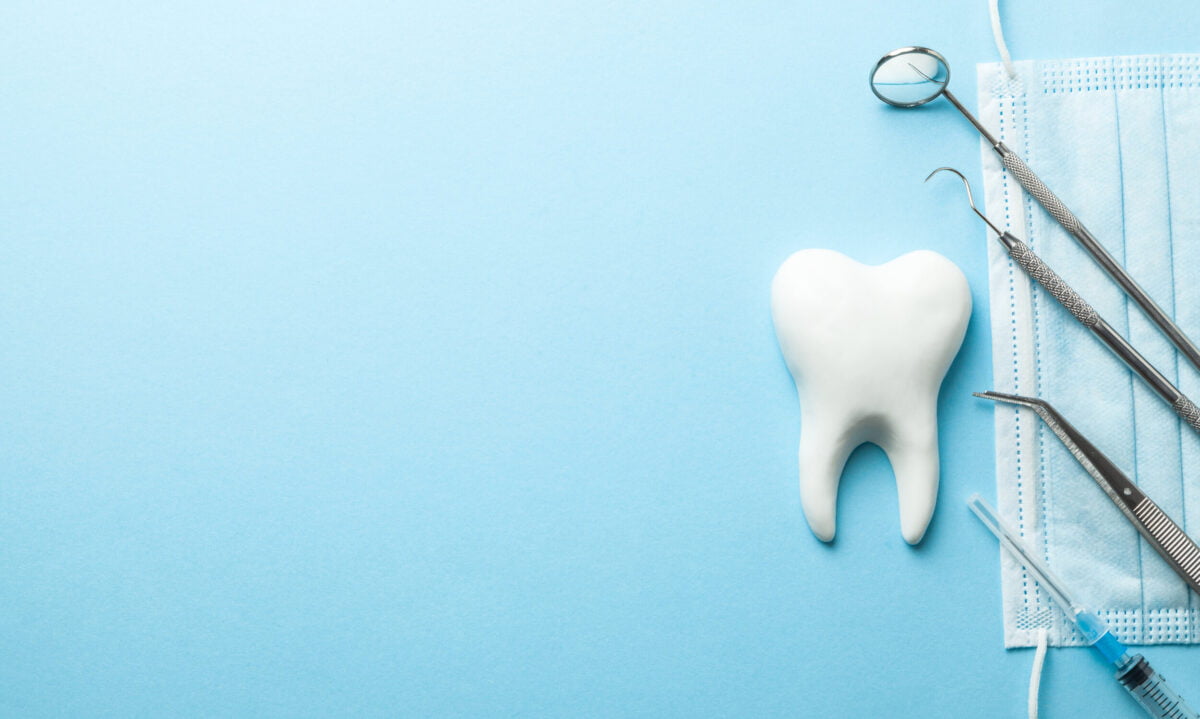Also known as tooth decay, a cavity is a hole in your tooth. Cavities are one of the most common health problems; anyone can develop cavities, even toddlers. Because they start small and generally don't cause pain at the beginning, many people don't realize they have a cavity until a dental checkup, or when the cavity becomes large enough to cause pain.
Symptoms of a cavity depend entirely on the severity of the decay and can include sensitivity (especially to sweets), pain, a black or white stain on the tooth, or even a hole you can see or feel.
What Causes Cavities
Tooth cavities are caused by plaque — and no one is immune to plaque. Plaque is a product of bacteria, saliva, acid, and food particles. Everyone has bacteria in their mouth, this is perfectly normal. When we eat or drink foods that contain sugar, the bacteria in your mouth turn that sugar into plaque.
Plaque sticks to teeth, and the bacteria in plaque produce acid. This acid eats away at tooth enamel slowly. If plaque is permitted to sit on our teeth without being removed for 12 hours or longer, the chances of weakening and erosion of tooth structure increases. This is when the risk for tooth decay / cavities is highest. This is why dentists recommend regular brushing (twice a day at a minimum) and flossing (once a day, before bed).
It is important to note that even people with excellent oral hygiene habits can develop cavities. Some people naturally have a higher risk: this is primarily attributed to saliva that is a higher pH (more acidic), or having very little saliva (dry mouth). Saliva is our body's best natural defence against tooth decay. It can be slightly basic (low pH), which counteracts the acid created by the bacteria in the plaque on our teeth. Saliva also bathes our teeth, helping wash away bacteria, plaque and food debris. "Fun" fact: our saliva flow completely drops off when we're asleep! Therefore, our body's ability to defend against cavity-causing plaque is at its lowest point during our sleeping hours. This is why it is crucial to brush and floss prior to going to bed.
A lack of fluoride has been proven to increase cavities in the general population as well — this is why most North American cities fluoridate their water. Calgary is currently debating water fluoridation, as they removed it from their water supply in 2011, and dentists in the area have seen levels of dental decay rise in the years since. However, fluoride has been categorized as a neurotoxin by the World Health Organization. This is the reason it was removed from the city of Calgary's water supply in 2011.
Excess fluoride consumption does not appear to be good for our brain health, but applying fluoride topically is great for our teeth. Just as no one should eat soap and lotion (though they are great topically for our skin), fluoride is best used as a topical agent. We encourage the use of fluoride toothpaste, and professional application of fluoride in-office.
Fluoride actually changes the outer surface of our teeth's enamel, making it much stronger and decay-resistant. Due to the deleterious effects of consuming fluoride, we do not recommend the use of fluoride toothpaste for anyone who is unable to spit it out (i.e. very young children). Please use a fluoride-free toothpaste for your kids, until you are confident that they can and will spit out their toothpaste without swallowing it. It is also safest for us residents of Edmonton (a city which does fluoridate its water) to drink filtered water. If you practice good oral hygiene, and use fluoride toothpaste, it is our opinion that there is no need or benefit to consume fluoridated water.
How to Prevent Cavities
To reduce your risk of cavities, we recommend brushing your teeth twice daily with a fluoride toothpaste, and flossing at least once daily. You can also lower your risk by:
-
Limiting your sugary/acidic food intake (like candy, juice, soda, and other refined sugars)
-
Limit snacking between meals (a constant supply of sugars/food debris increases bacteria's plaque production)
-
Chewing sugar-free gum
-
Regular tooth cleanings, where we clean away stubborn plaque that is missed by regular brushing, provide a fluoride rinse to promote healthy enamel, and check for cavities so we can catch them before they develop into more serious issues. Sometimes, we will find sites that can develop into cavities if they aren't tended to, and can actually help you avoid fillings!
Why They Need Treatment
Cavities can cause a variety of more serious complications if they're left untreated. You may experience:
-
Ongoing tooth pain
-
Increased risk for breaking/chipping your teeth, as the enamel wears down and the tooth becomes weaker/more brittle
-
Difficulty chewing food, due to tooth weak or sensitive teeth.
-
The most serious complication of a cavity is caused when the decay / bacteria enter the nerve of the tooth. This results in the necessity of a root canal or tooth extraction. When left untreated, an abscess (infection) will develop. In extreme cases, such an abscess can affect adjacent teeth, and cause infections that spread beyond the mouth.
How Cavities are Treated
Early Stage Treatment
If we're able to detect the cavity early enough, you may only require fluoride application (in-office and at home, using toothpaste) to restore the tooth enamel and prevent further decay.
Fillings
The most common treatment is a tooth filling. This is a relatively minor procedure; we will numb the area, and remove the decayed tooth material. We will then fill the hole with a composite resin (tooth colored filling), to ensure plaque cannot continue to damage the tooth.
Crowns
For more severe decay, we may suggest a crown — a custom-made cap that covers the entire outer surface of the tooth. Read more about crowns here.
Root Canals
A deep cavity can give bacteria access to the inner nerve bundle. In some cases, a significant infection may develop in your jaw without any symptoms at all. If Dr. Withanachchi determines that the nerve won't recover or infection is present, then root canal treatment may be suggested.
Modern anesthetics provide powerful numbing for gentle removal of the inflamed nerve inside the tooth. The nerve canal undergoes disinfection and careful shaping, and a sealer fills the internal space. A filling or crown over the tooth helps return the tooth to its original condition.
Extractions
This is the least ideal option for dealing with a tooth that has a cavity. We, at Toothworks Dentistry, only opt to remove teeth with cavities when the tooth is so decayed that it is not practical to try to restore it.
We're committed to your ongoing oral health. If you're experiencing tooth pain or sensitivity, or are overdue for your regular dental cleaning and exam, please contact our office to book an appointment.
Yours in better dental health,
Toothworks






